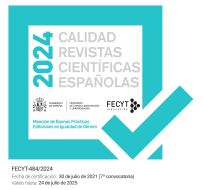La Ley Orgánica de Mejora de la Calidad Educativa (LOMCE): ¿una reforma más?
DOI:
https://doi.org/10.5944/hme.3.2016.14811Parole chiave:
LOMCE, Política educativa, Neoconservadurismo, Partido PopularAbstract
El 9 de diciembre de 2013 fue aprobada la Ley Orgánica para la Mejora de la Calidad Educativa (LOMCE) actualmente en fase de desarrollo y aplicación. En este artículo se exponen sus orígenes inmediatos ―el fallido pacto por la educación promovido por el ministerio Gabilondo del Partido Socialista en los años 2009-2010―. Después se analizan la inserción de la LOMCE en la política social y económica del Partido Popular, y en la política educativa propugnada desde dicho partido o llevada a cabo en las Comunidades Autónomas gobernadas por el mismo, así como los objetivos de la nueva reforma a corto, medio y largo plazo. En este análisis se destacan los rasgos o aspectos de índole neoconservadora apreciables en la nueva reforma, y se incluyen algunas referencias a su proceso de aplicación.
Downloads
##submission.downloads##
Pubblicato
Come citare
Fascicolo
Sezione
Licenza
Authors who publish in Historia y Memoria de la Educación agree to the following terms:
- Authors retain copyright and grant the journal right of first publication with the work simultaneously licensed under a Creative Commons Attribution-NonCommercial 4.0 International that allows others to share the work with an acknowledgement of the work's authorship and initial publication in this journal.
- Authors are able to enter into separate, additional contractual arrangements for the non-exclusive distribution of the journal's published version of the work (e.g., post it to an institutional repository or publish it in a book), with an acknowledgement of its initial publication in this journal.
- Authors are permitted and encouraged to post their work online (e.g., in institutional repositories or on their website) prior to and during the submission process, as it can lead to productive exchanges, as well as earlier and greater citation of published work (See The Effect of Open Access).










